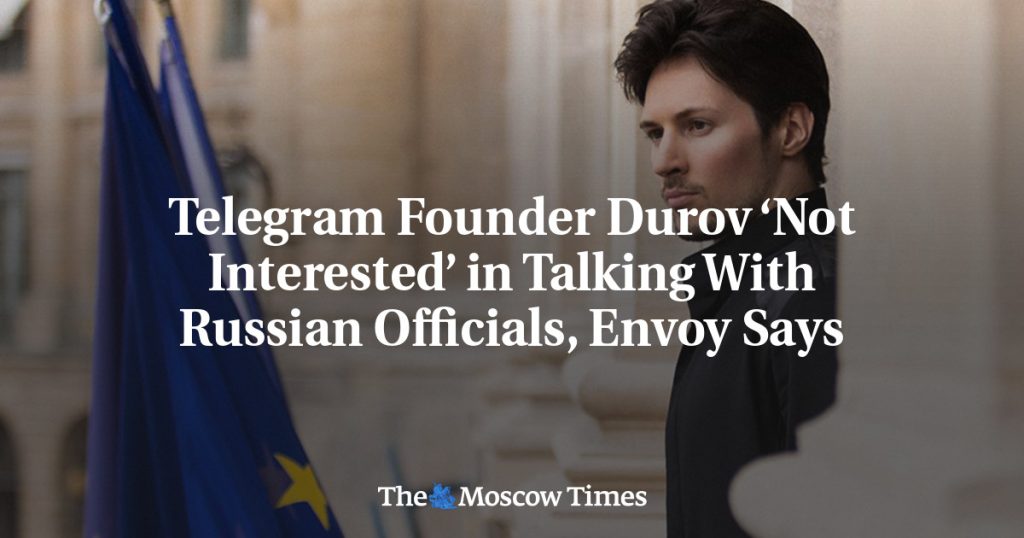Pavel Durov, the founder and executive chief of Telegram, has been embroiled in a legal battle in France after being charged with failing to curb extremist and illegal content on the popular messaging app. Despite being originally from Russia, Durov has shown no interest in contacting Russian authorities, according to Moscow’s ambassador to France. He was detained last month at Le Bourget airport near Paris and granted conditional release after posting bail of five million euros. Durov is required to remain in France and report to a police station twice a week.
Russian Ambassador Alexei Meshkov stated that the French authorities view Durov’s case as a matter between their state and a citizen. Durov, who obtained both French and United Arab Emirates citizenship in 2021, has not engaged with Russian diplomats or expressed interest in contacting them. The Russian Embassy in Paris has made requests for relevant materials on Durov’s case to the French authorities, but those requests have been denied. Russian Foreign Ministry spokeswoman Maria Zakharova confirmed that Russian diplomats are taking necessary actions and have requested consular access to Durov.
Durov’s departure from Russia in 2014 was prompted by pressure to share users’ private messages from the social media website VKontakte with Russian law enforcement officials. Despite publicly breaking ties with Russia, investigative reports indicate that Durov traveled to the country more than 50 times between 2015 and 2021. The motivations behind these trips remain unclear, as Durov has not made any official statements regarding his visits to Russia. The legal battle in France has escalated tensions between Durov and Russian authorities, raising questions about the nature of his relationship with his home country.
The Moscow Times, an independent news outlet, is facing challenges in Russia as the authorities have designated it as an “undesirable” organization and labeled it as a “foreign agent.” Despite these obstacles, the journalists at The Moscow Times are committed to providing accurate and unbiased reporting on Russia. The outlet is seeking support from readers to continue their work and defend independent journalism in the face of repression. The challenges faced by The Moscow Times highlight the broader crackdown on media freedom in Russia, where independent voices are increasingly marginalized and targeted by the authorities.
Overall, the legal battle involving Pavel Durov in France has underscored the complex dynamics between the tech entrepreneur and Russian authorities. Durov’s refusal to engage with Russian diplomats and his dual citizenship status have further complicated the situation. The case has drawn attention to issues related to freedom of speech, government control of information, and the challenges faced by individuals who operate in the digital space while navigating political pressures. As the legal proceedings continue, it remains to be seen how the situation will evolve and what implications it may have for Durov, Telegram, and the broader landscape of online communication platforms.














